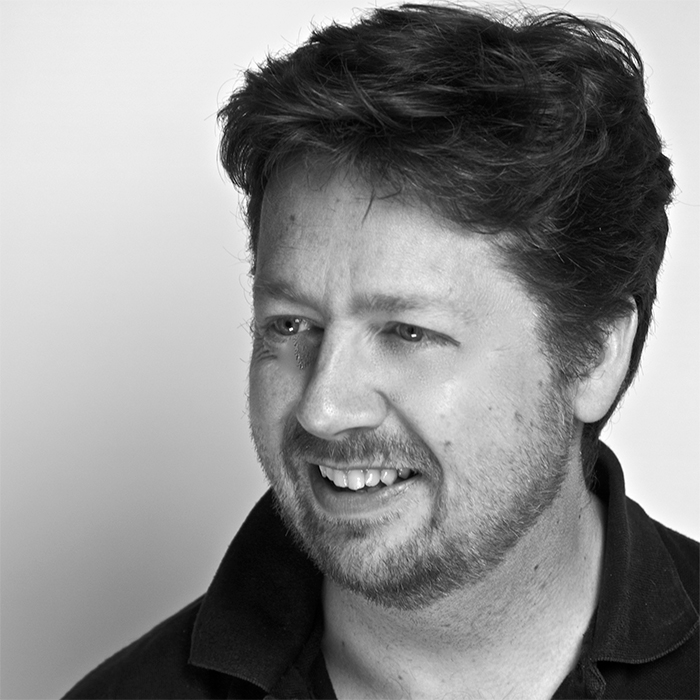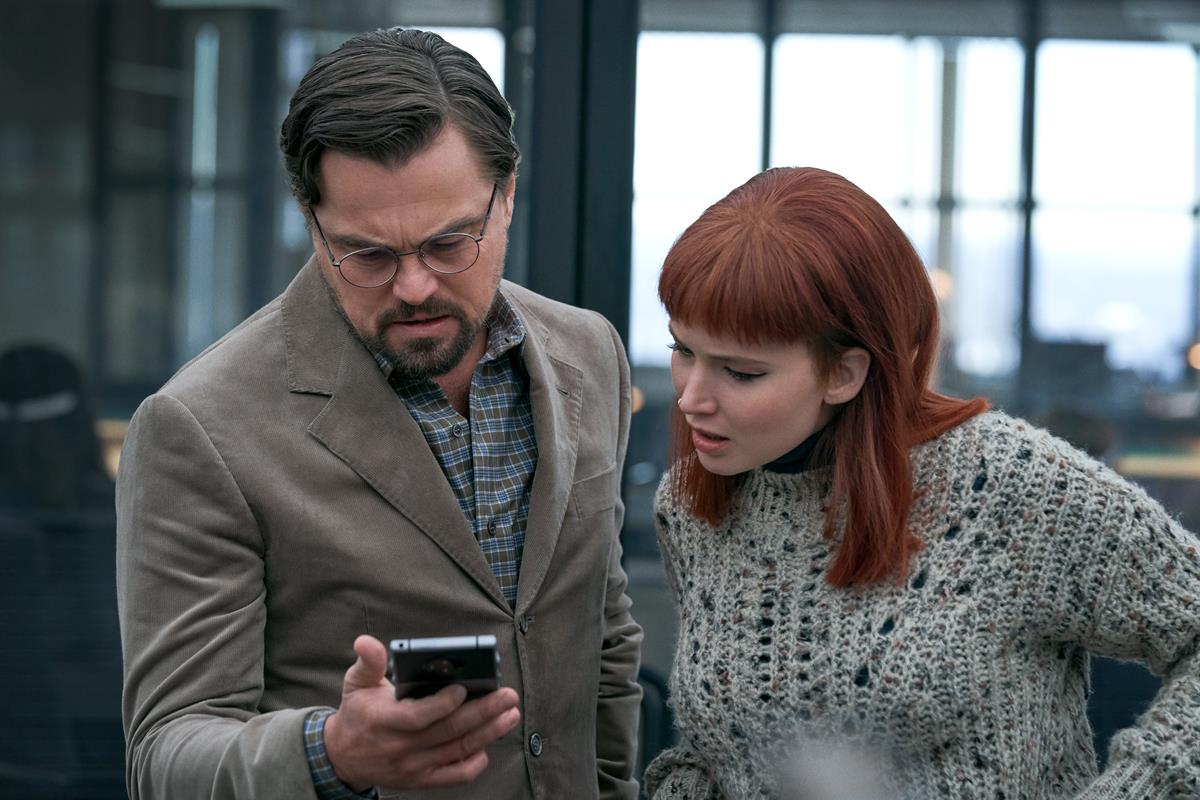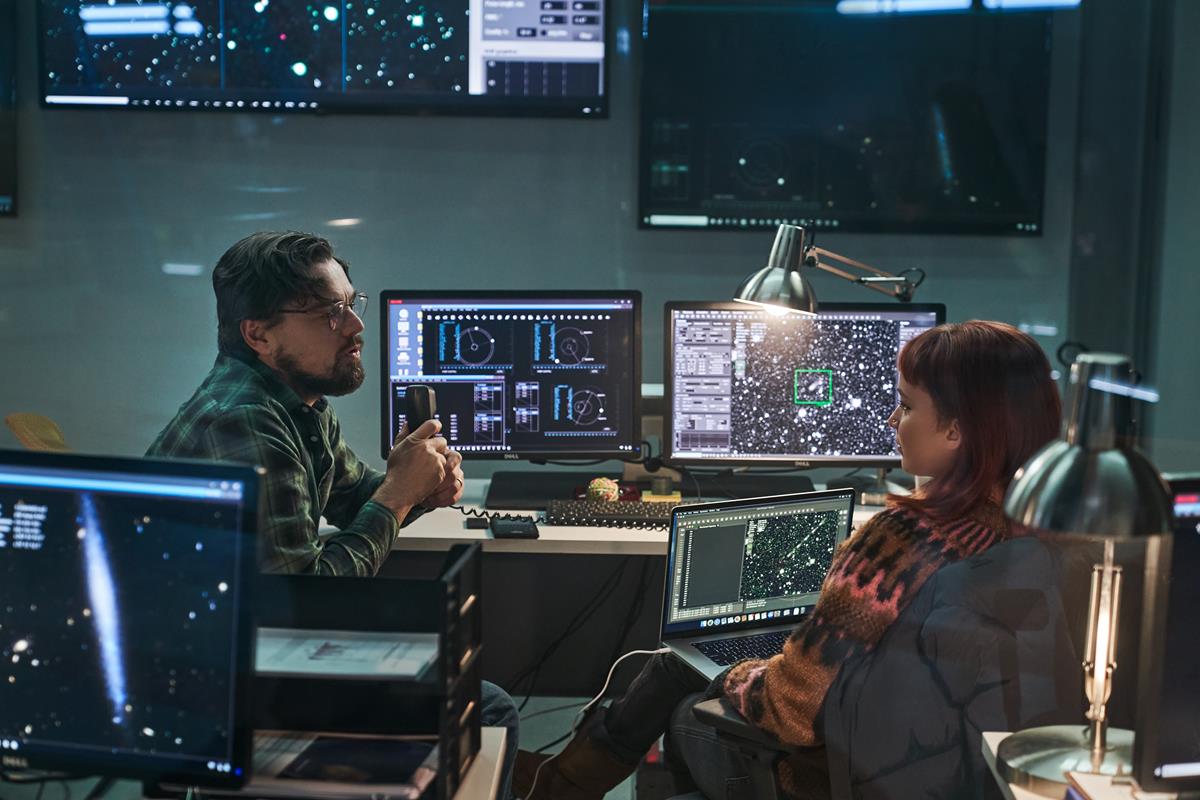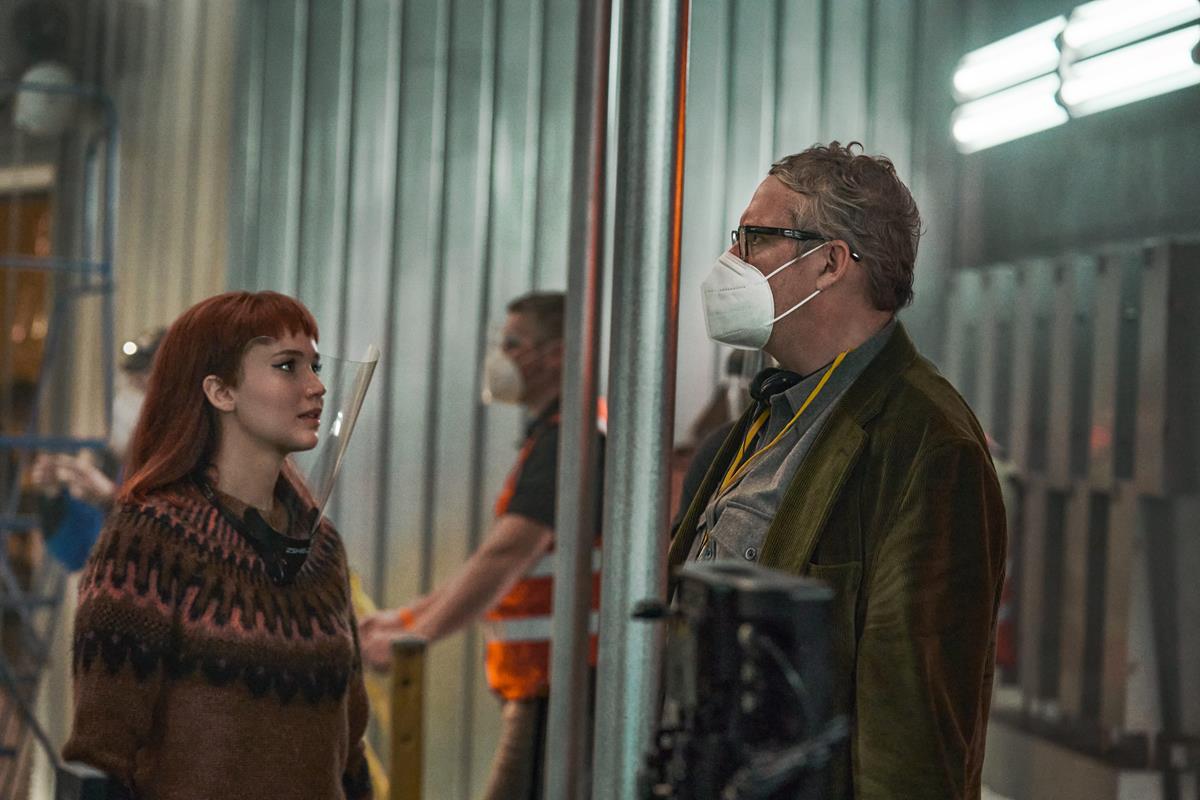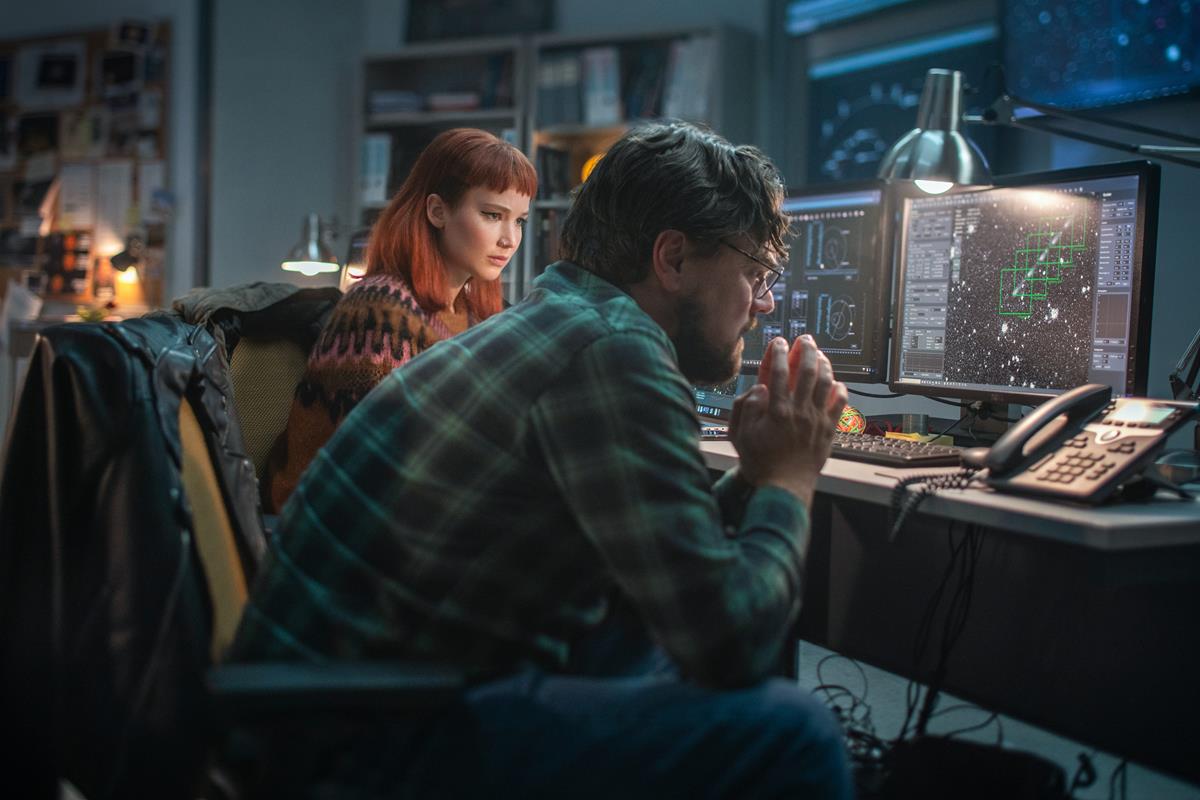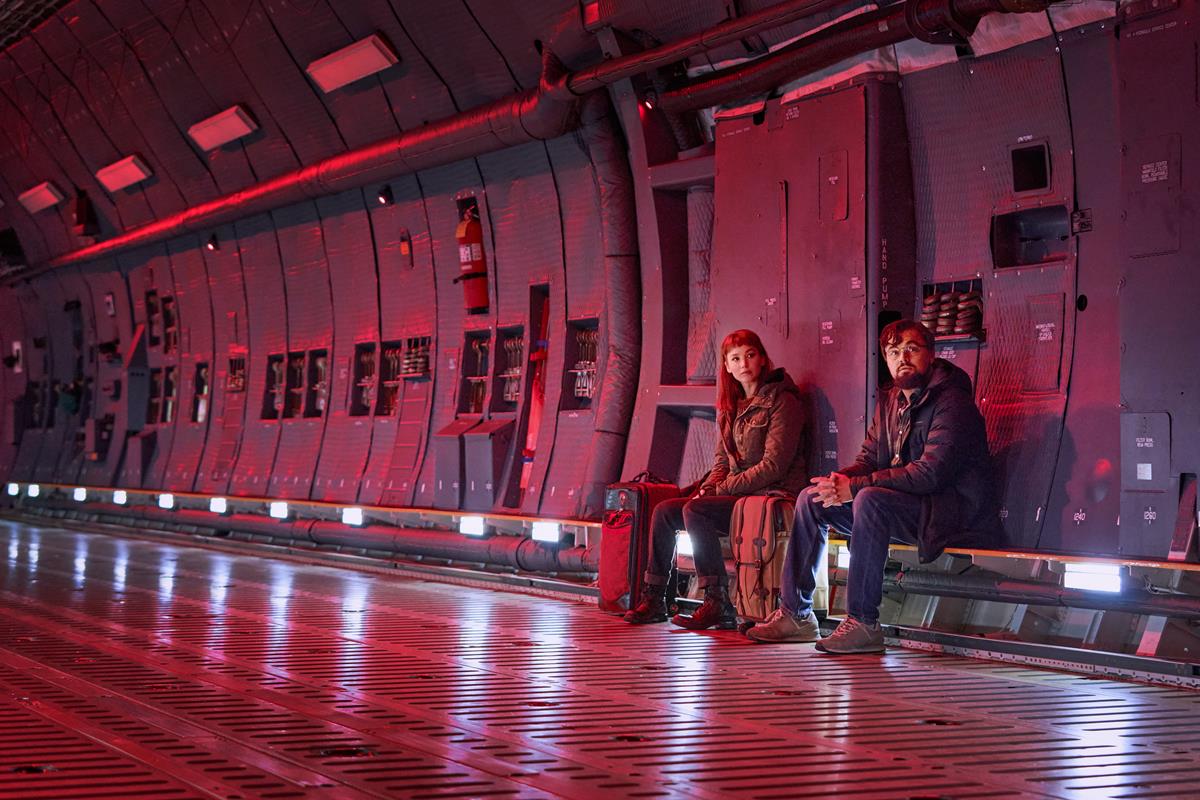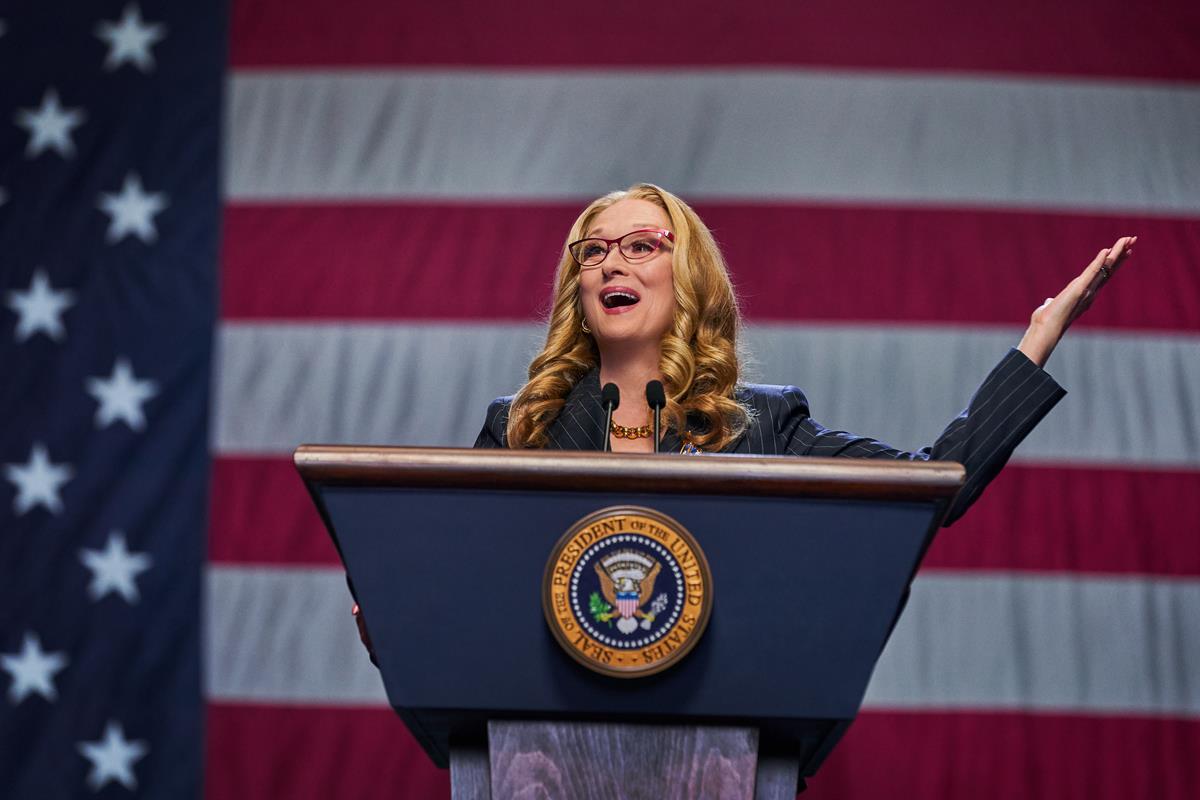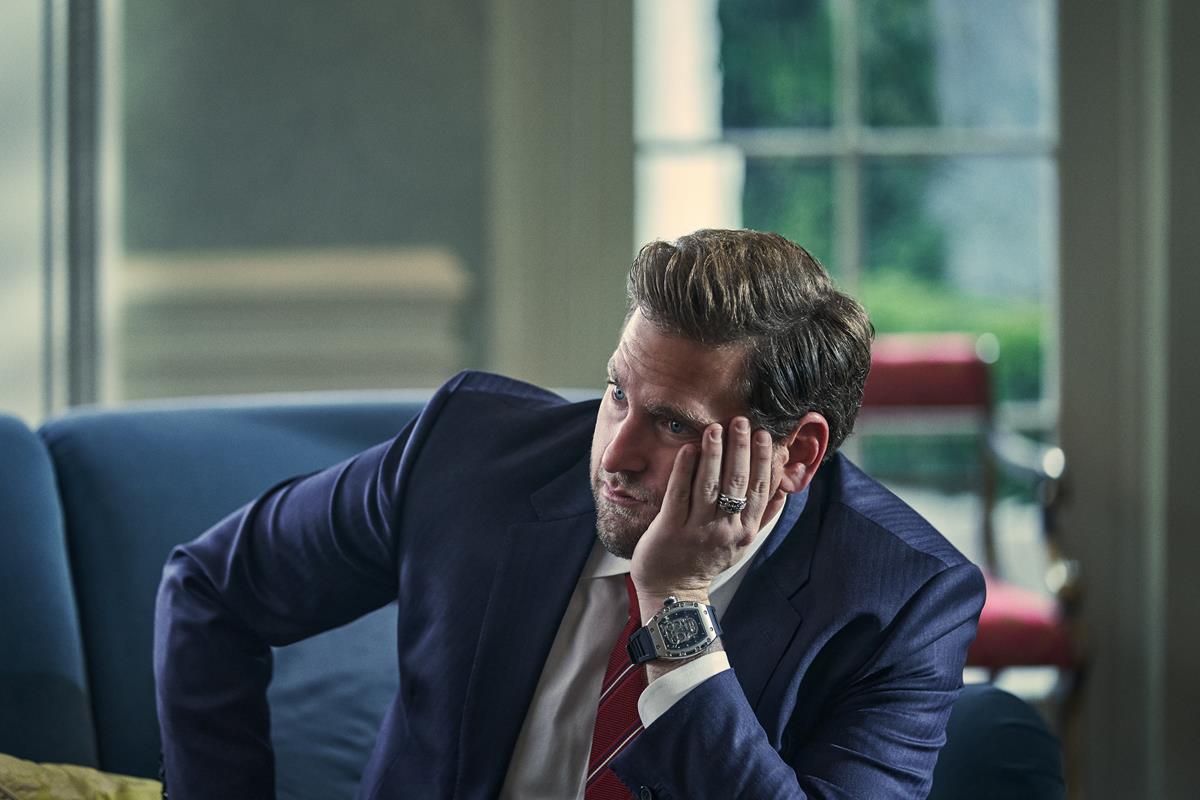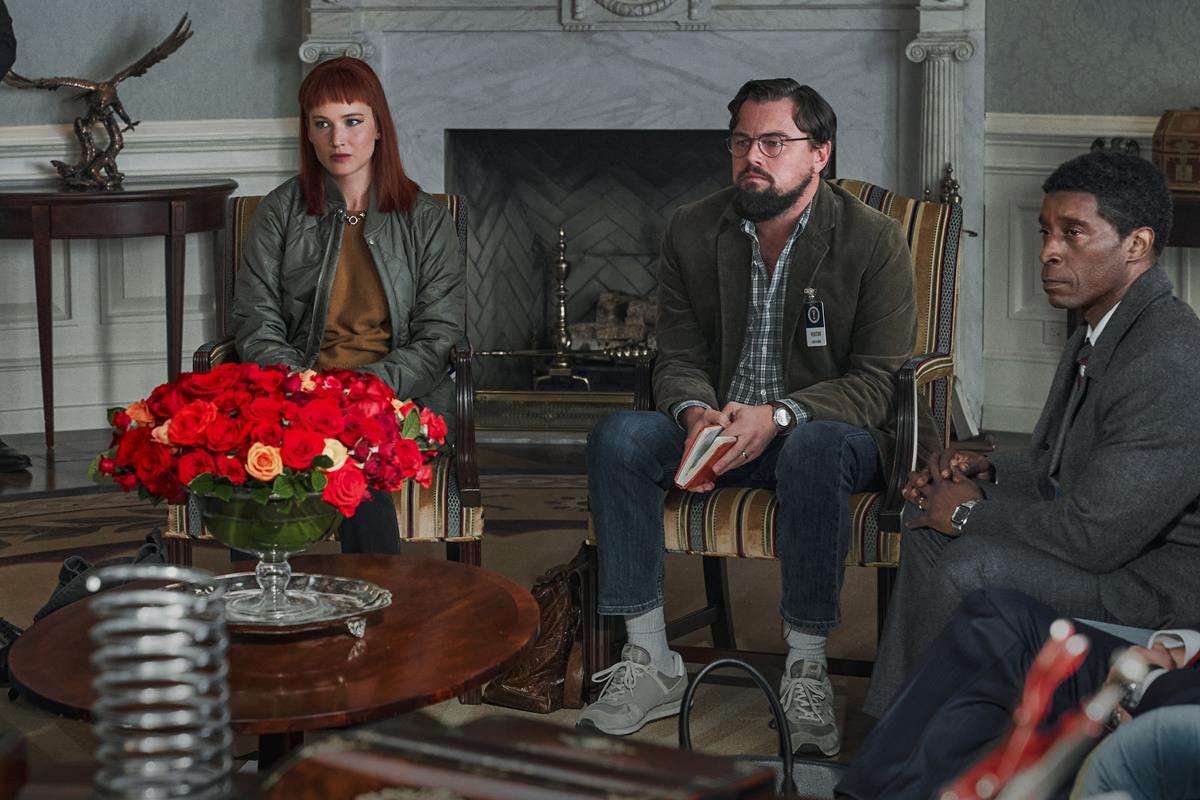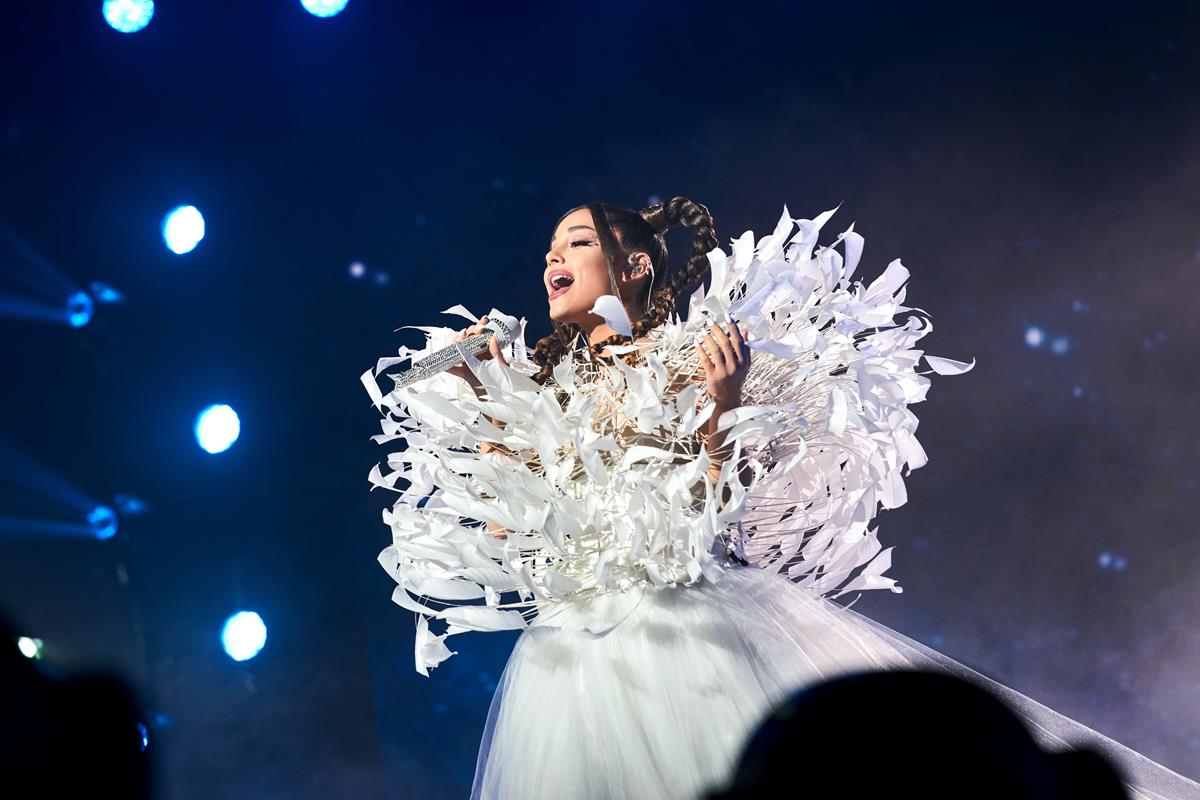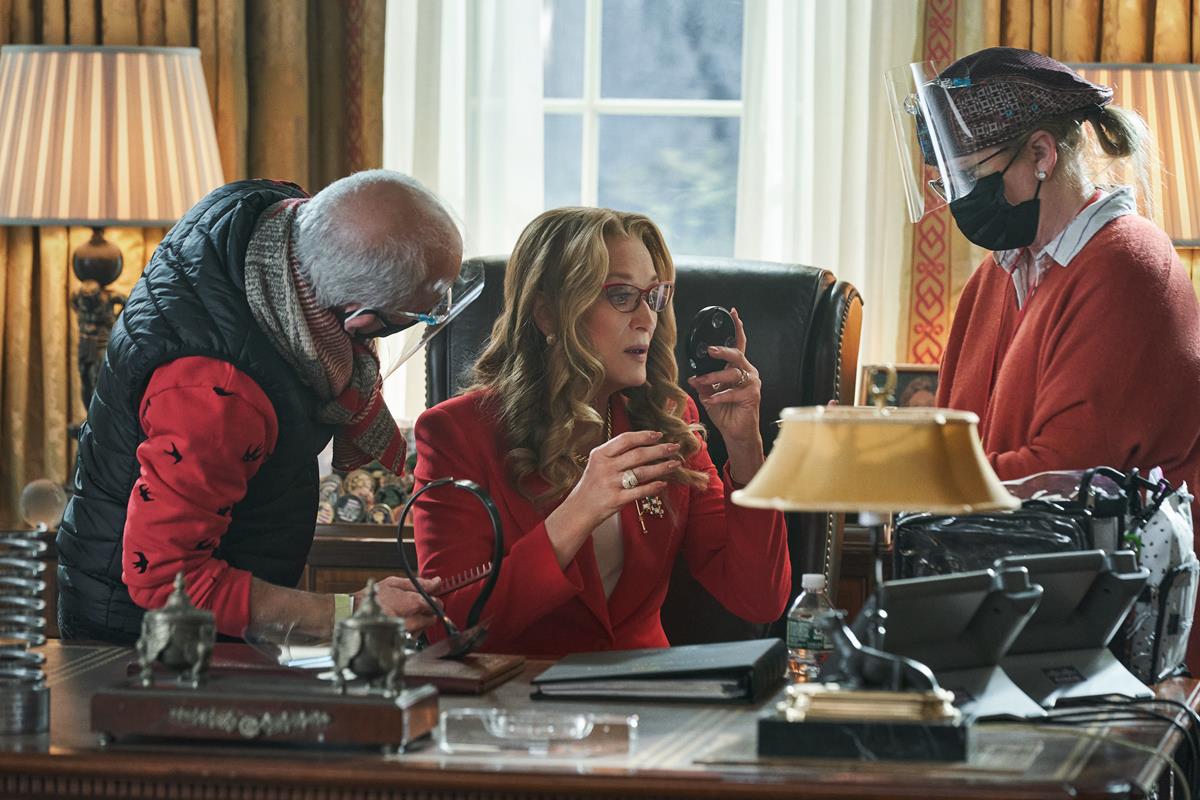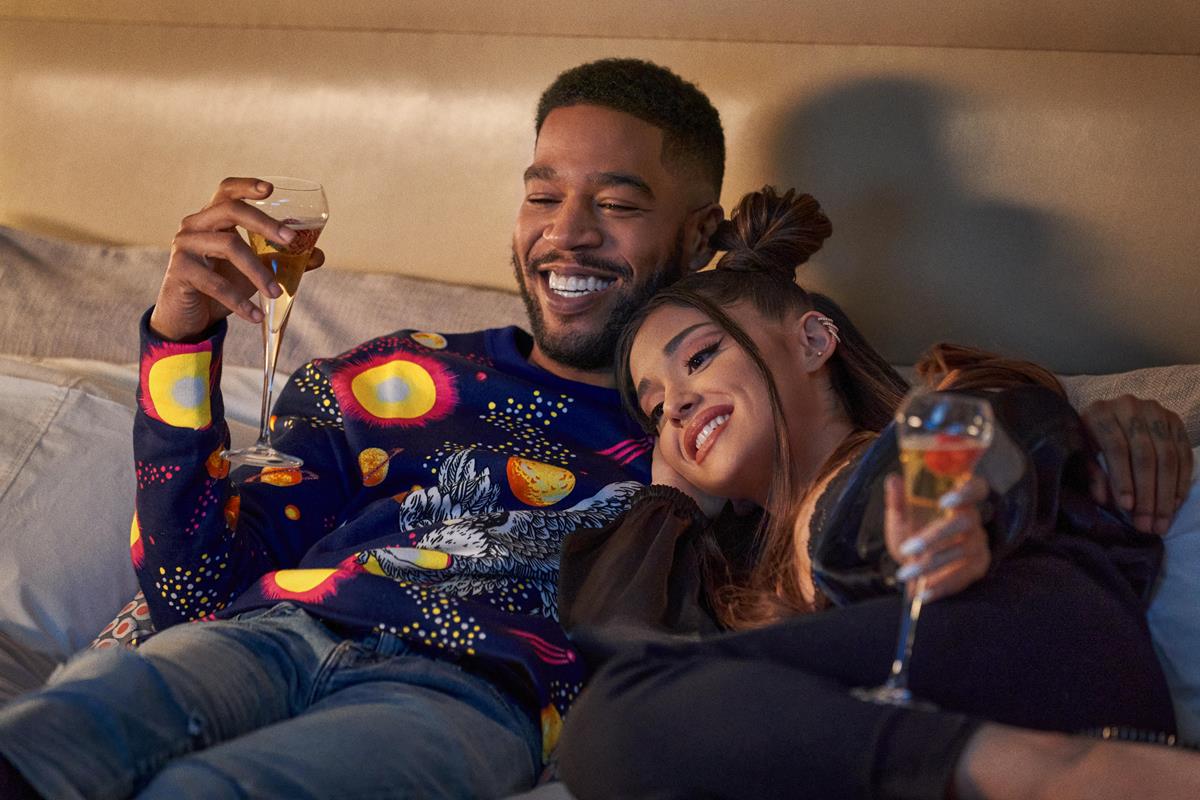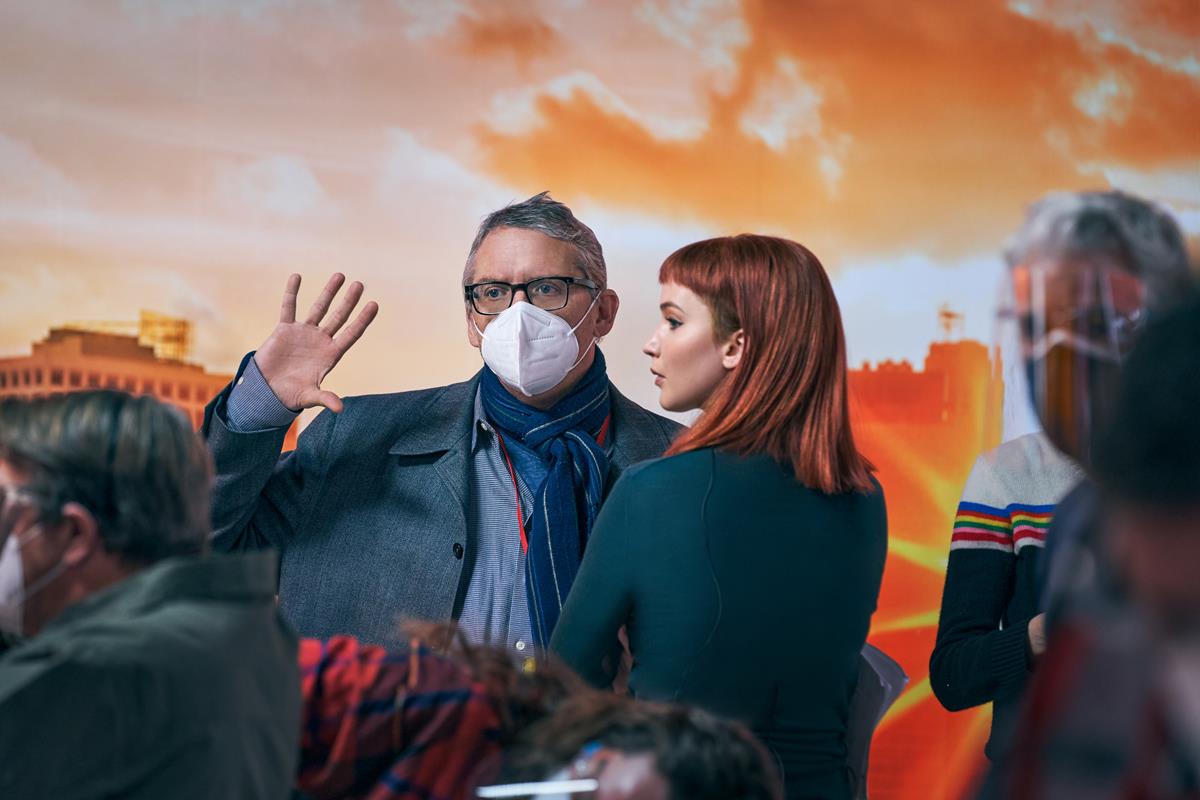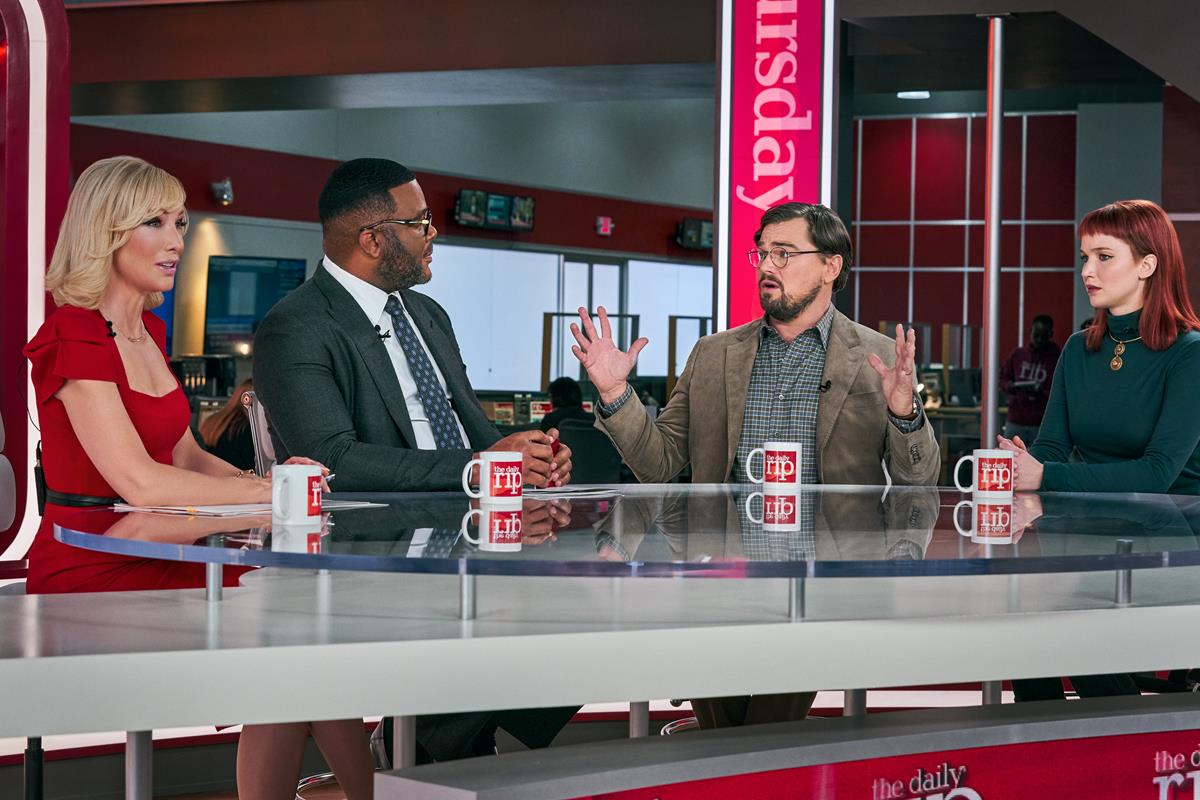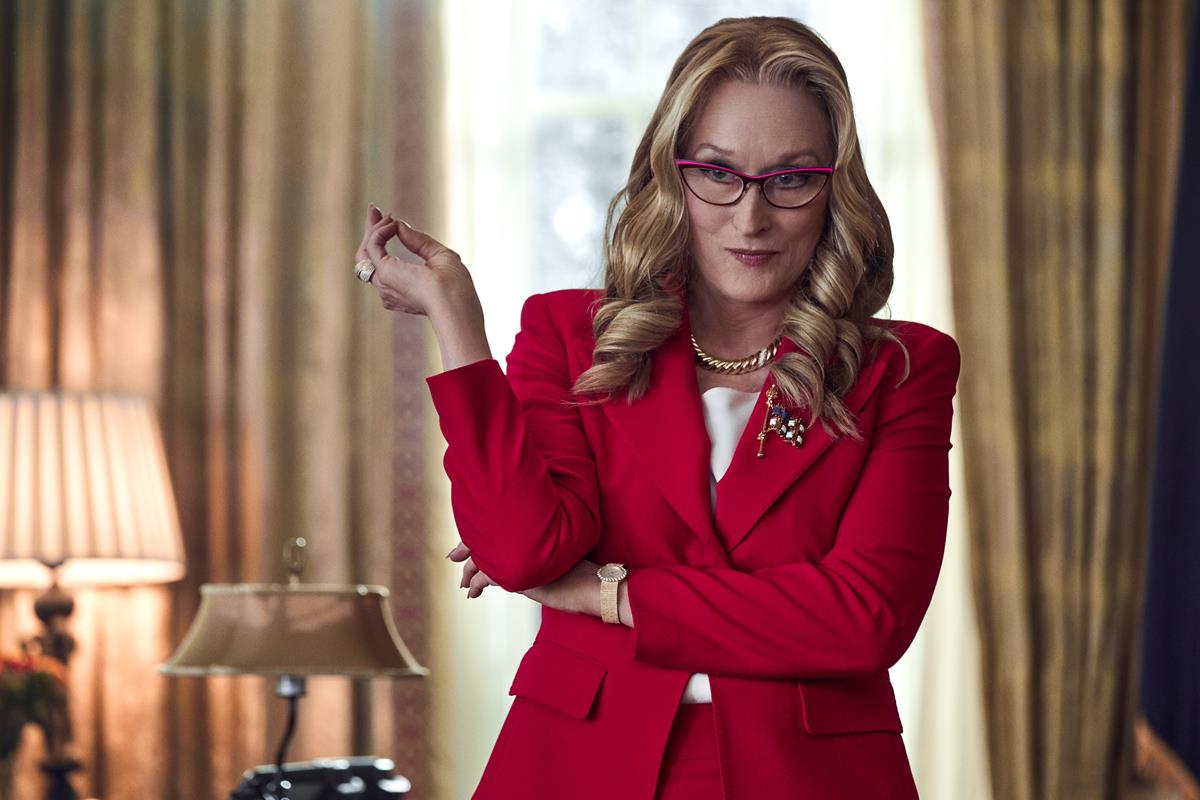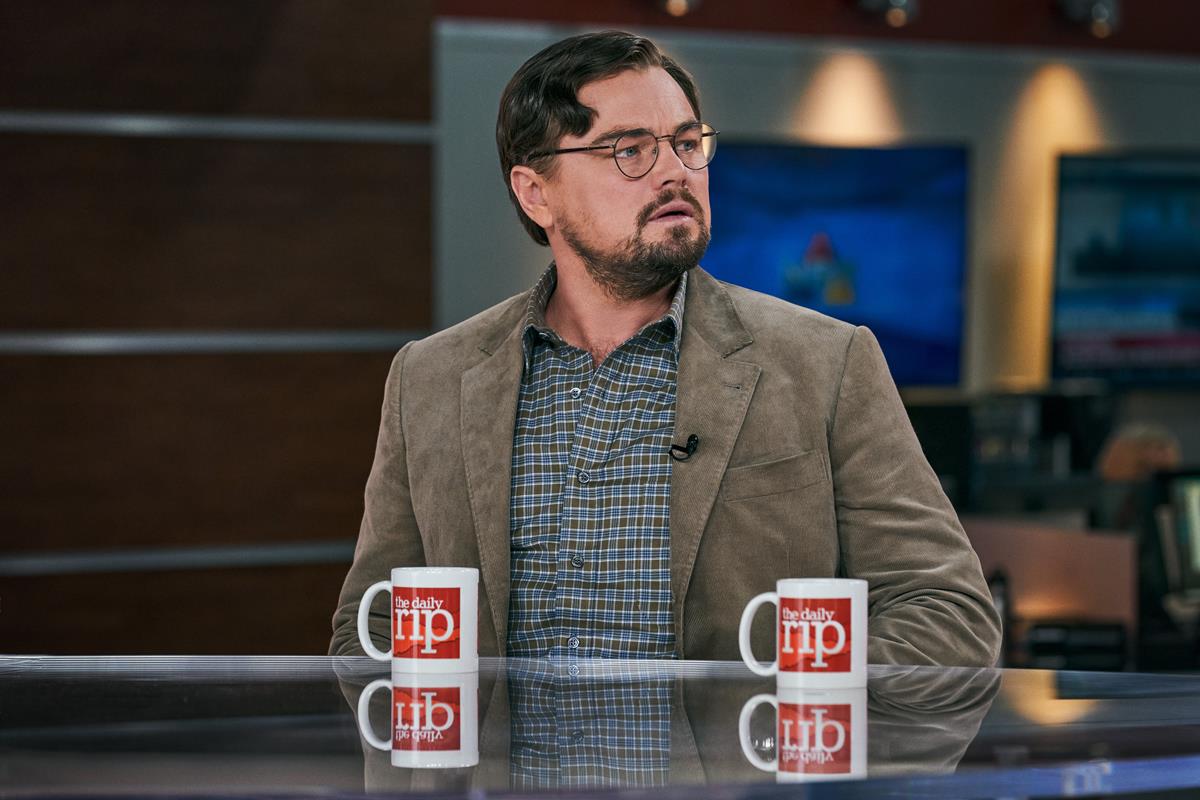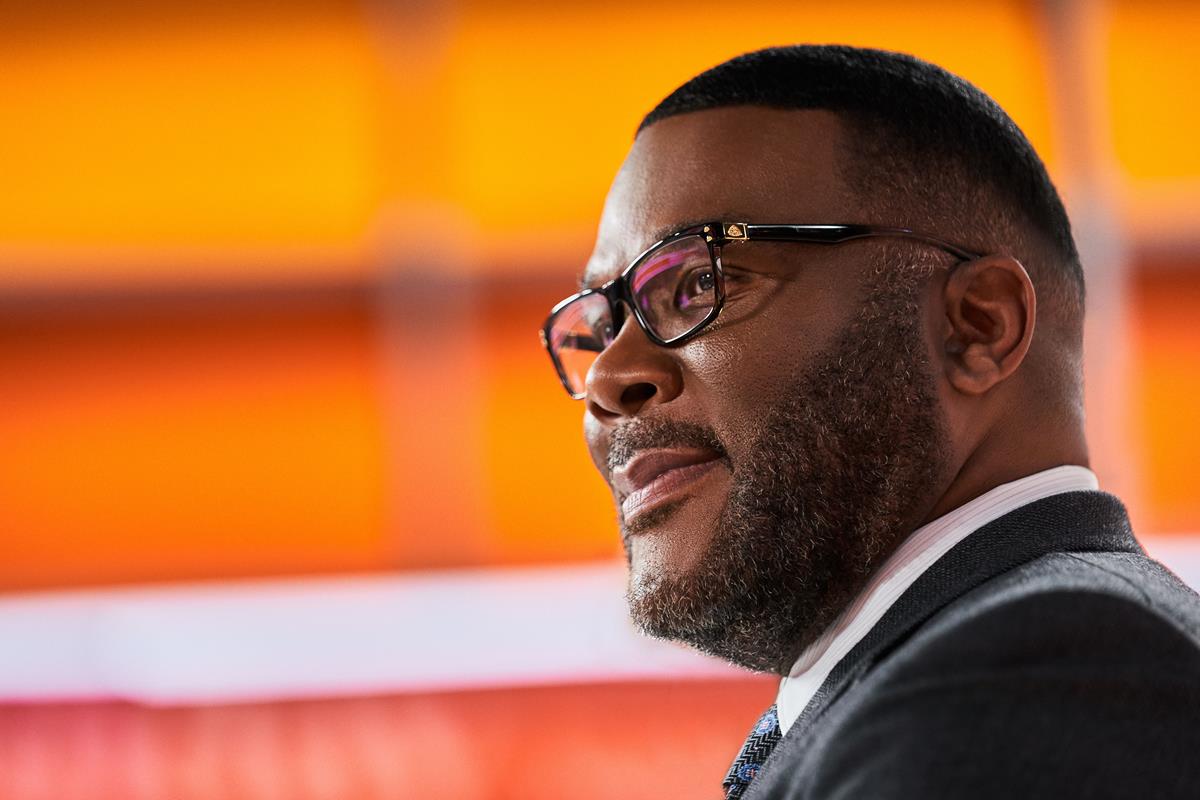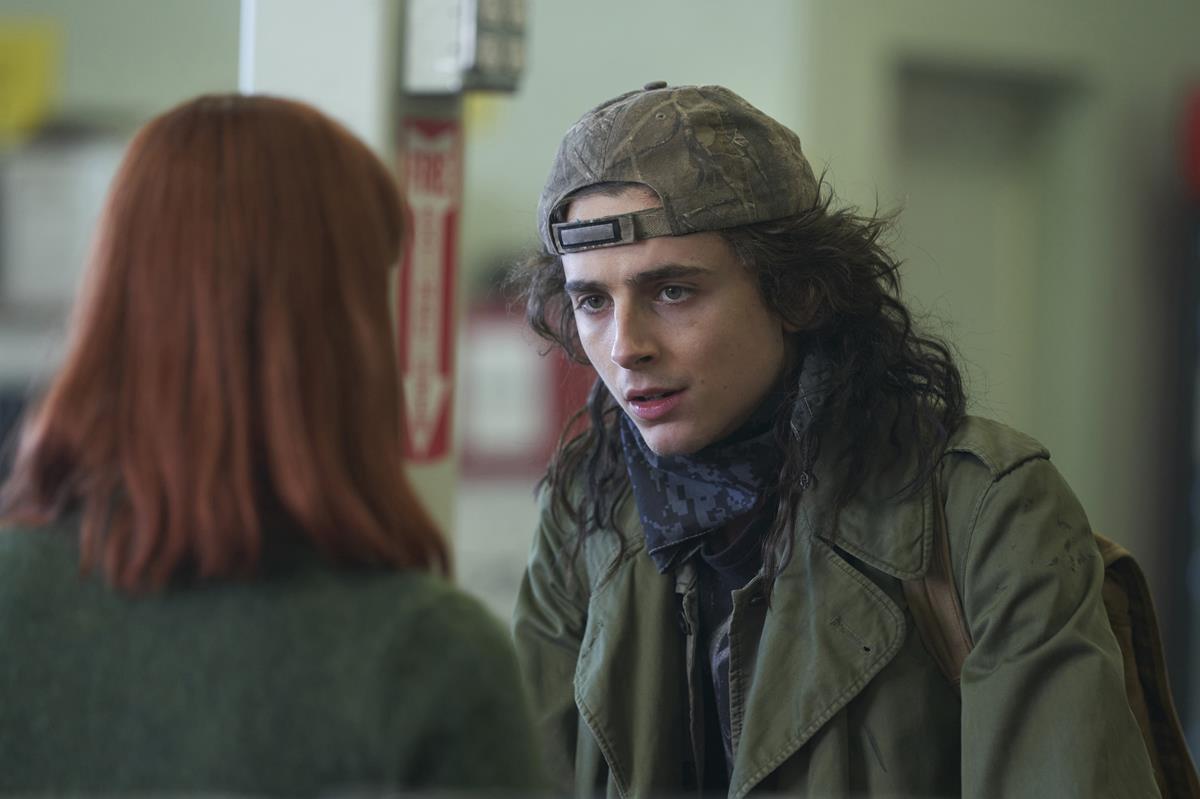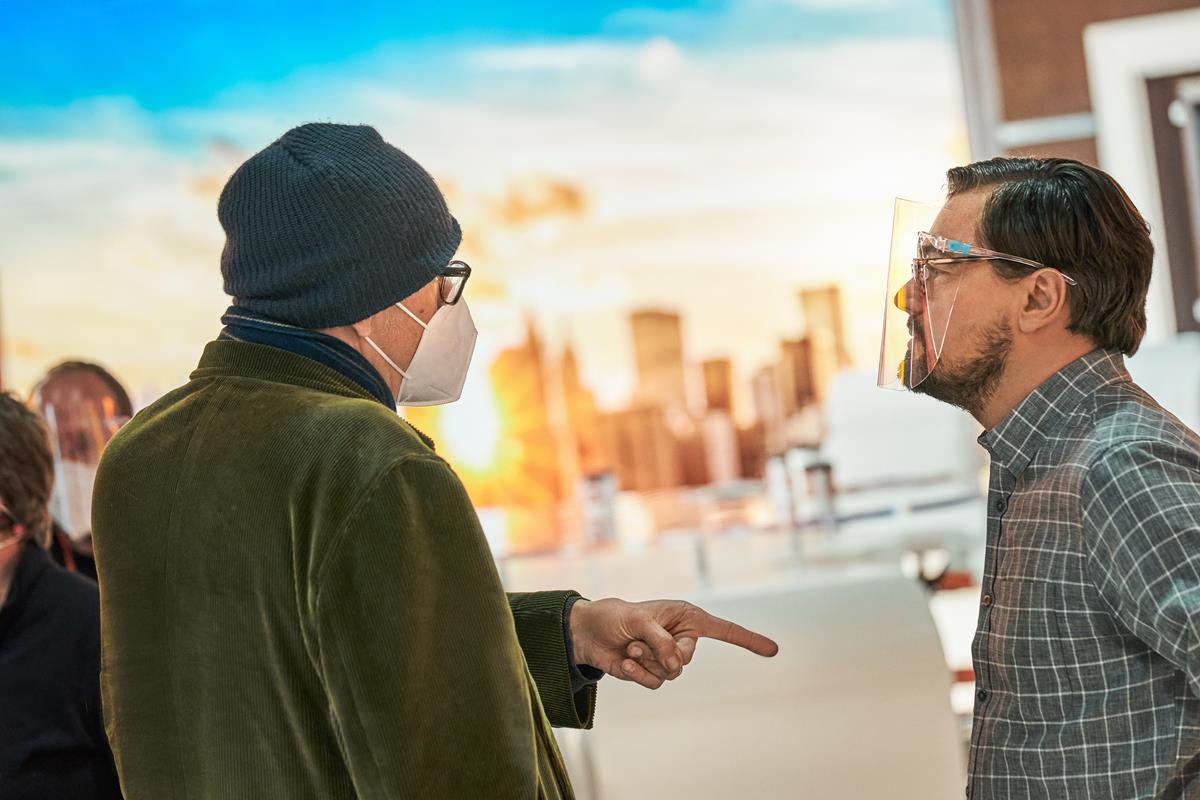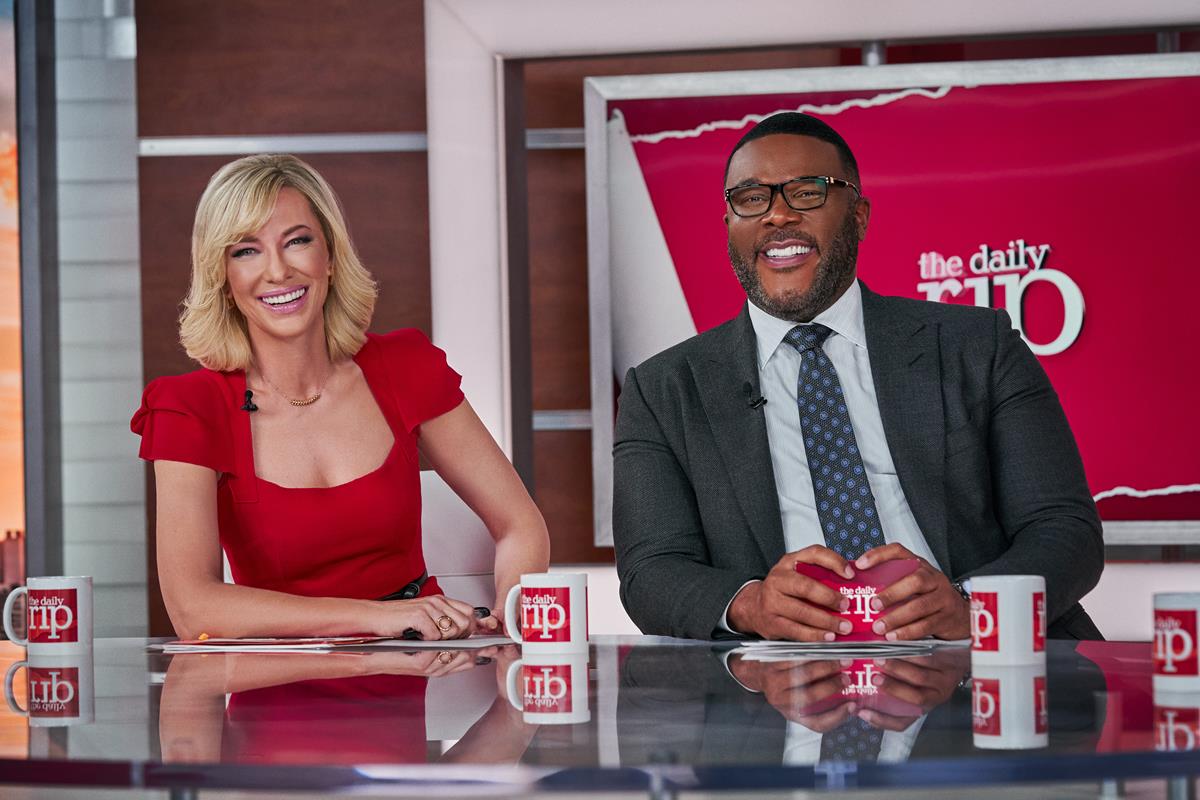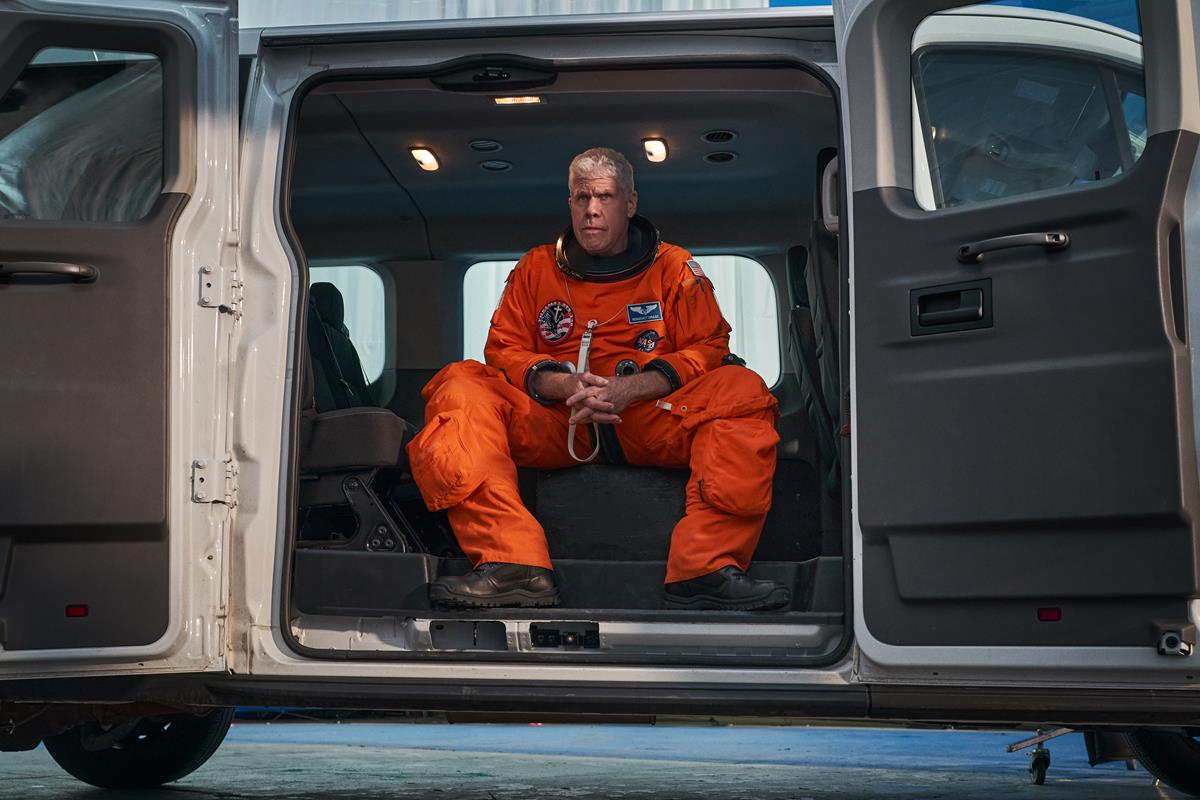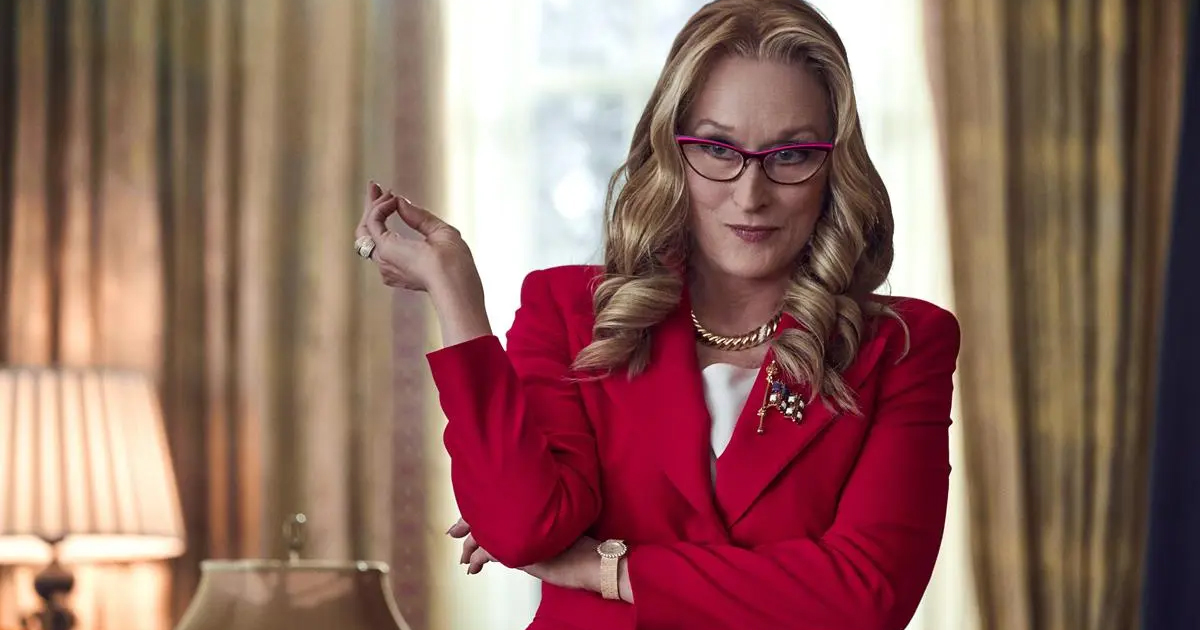
Adam McKay, writer and director of Don’t Look Up, was in shock that he’d managed to convince such a star-studded cast to join his new movie and was looking forward to a 2020 shoot with huge anticipation — then the pandemic hit and massive doubts bubbled up about making it at all. “It was probably the strangest six months of my life” he said, “seeing an actual disaster unfolding across the world and seeing beat after beat in the script come true.
“I started wondering ‘Do we need to even make this anymore?’ But I remember turning off the news one night and re-reading the script, and my very first thought was, ‘It’s not crazy enough.’ It actually read a bit dry compared to what was actually happening. So I tweaked everything to be 15 percent crazier than it was before.”
The movie follows astronomy graduate student Kate Dibiasky (Jennifer Lawrence) and her professor Dr. Randall Mindy (Leonardo DiCaprio) following their discovery of a planet-killing asteroid headed directly on a trajectory with Earth. They struggle with an apathetic public and a recalcitrant political class in a story that had to balance a climate change message without becoming hectoring, and humor that would show off the riches of the film’s adlibbing cast.
McKay called on his go-to editor, Hank Corwin, ACE, to set the tone. He challenged Corwin to find that balancing act between humor and pathos, formality and abstraction.
This is the third collaboration between McKay and Corwin, following The Big Short and Vice. The BAFTA-winning editor has worked with Oliver Stone, Terrence Malick and Robert Redford, among other directors.
“We talk a great deal and we do have a shorthand now. He knows that I’ll use non-sequitur moments,” Crowin told Cinemontage. In Don’t Look Up he knew I wanted to use nature and behavior so he’d shoot those moments, not knowing necessarily how I’d use them. Adam knows that I like to think in terms of collage as opposed to montage — especially in this film. I don’t want to make scenes overtly polemical. I don’t want to make scenes overtly political. I think the politics that are really important are the politics of emotion and the politics of will.”
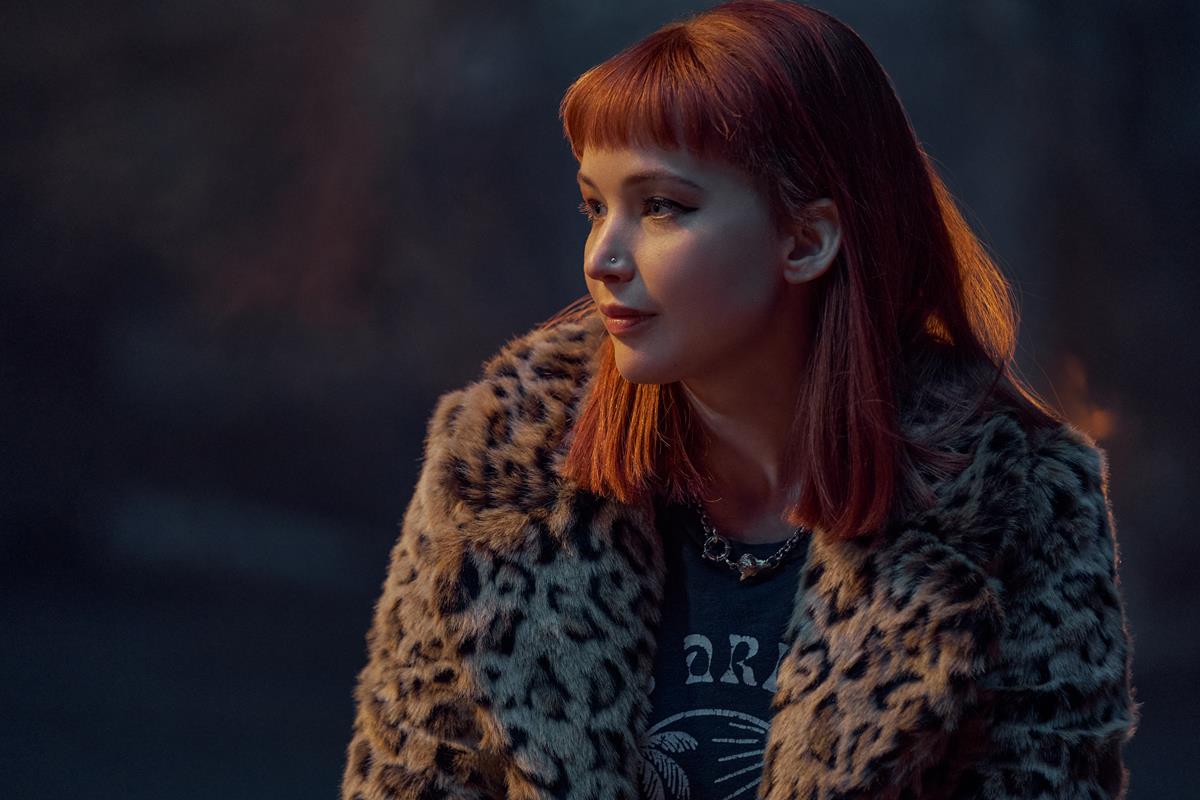
It was obvious that Corwin was taking a very different approach to this project than he did with McKay’s previous two films, both of which were based on actual events and required quite a bit of research. “Usually, the way I look at film is I always try to find the subtext of something,” he said.
“The existential nature of this film was right at the forefront. So, as opposed to doing historical research, what I wanted to do was research into natural history. I wanted to show the juxtaposition of the folly of our characters with the eternal yet very delicate state of nature on this planet. I spent months looking at everything from eagles to hippopotami. I guess you could say, it was actually much more of a spiritual approach.
“Adam kept wanting to balance the tone. We had to have levity. It’s a comedy, but everything must be plausible. He had me constantly pulling back the comedy. I don’t come from a funny world like Adam does. I was so proud of myself that I was making these very funny scenes, which we discovered were upending the movie.
“I had to make the scenarios more serious and somewhat plausible, even if they were funny. Obviously, it’s hard when you have someone like Jonah Hill, who’s cracking wise and upending Meryl Streep. It’s an interesting dynamic.”
READ MORE: Hank Corwin Talks Editing and Collaboration in ‘Don’t Look Up’ (Cinemontage)
Speaking with The Hollywood Reporter, Corwin described the dangers of not managing the tone and allowing it to become too set in one direction. “If you make something too funny, or if one character is too weighty, then maybe half an hour down the line, the film won’t feel truthful,” he said. “You have to go back and ascertain what the tone is, where there’s comedy but also where there’s great poignancy and tragedy.”
READ MORE: ‘Don’t Look Up’ Editor on Why Finding Film’s Tone Was Challenging (The Hollywood Reporter)
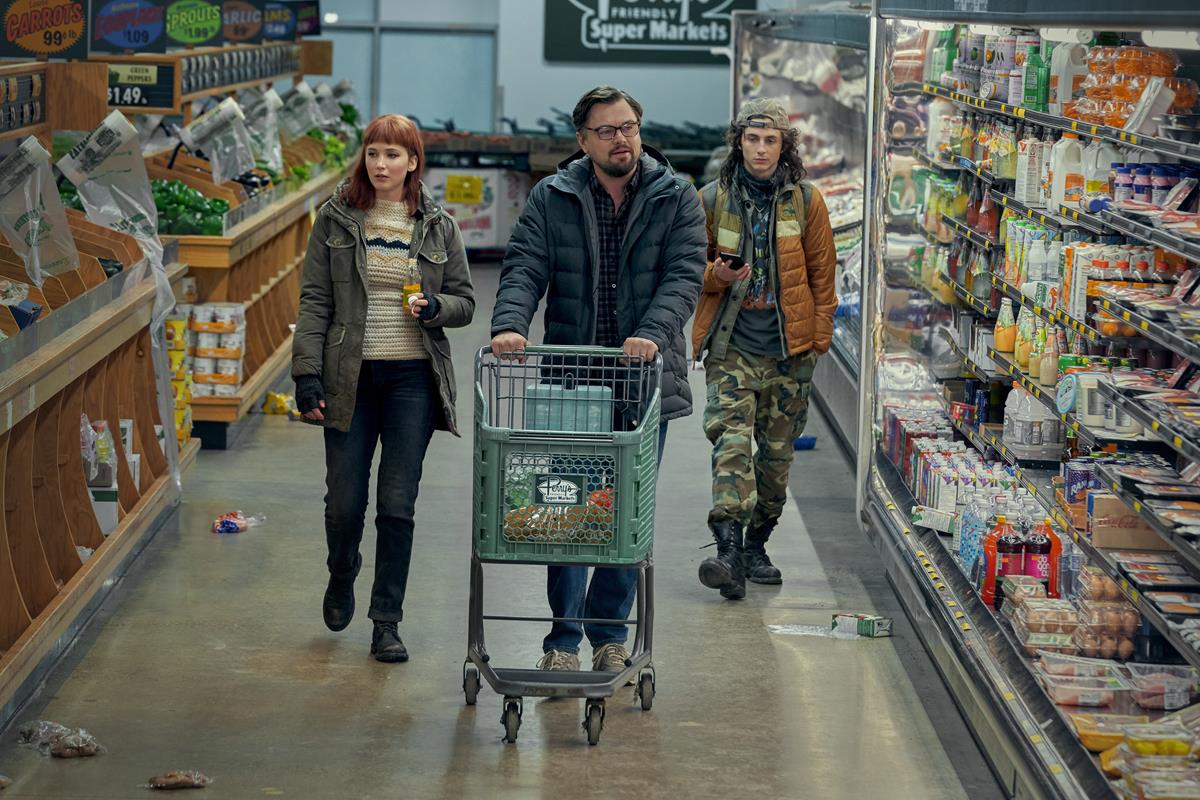
In an interview with Filmmaker Magazine, Corwin elaborated further on how he used his collaging technique to anchor the film in nature as a tow to the surrounding narrative.
“Right from the beginning. This was a film about communication, about truth and truthfulness. The thing is, it could spin off, become almost too cynical. I wanted to show what was for me the ultimate truth, the state of nature.
“If you have an ocean pounding on a rock, there’s no interpretation there, it just is. If you have a bee collecting pollen, it is just that. I needed that kind of imagery to work in counterpoint to the absurdity of what was going on in the film. The trick with this film is that there is a narrative thrust. I have to take my shots where I can find them. Fortunately Adam shoots moments for me, these impressionistic moments.
“I just try to put in what moves me. There are flows and rhythms. Sometimes I’ll take shots and just move them two or three shots down in the flow. I’m really tuned in to being overwhelmed by the emotional or the narrative thrust of something. I’ve been accused of being a very aggressive editor, but I love sitting on moments.
“McKay is a guy who will have brilliant performances and these brilliant scenes, but if the overall arc of the film isn’t working correctly, he’ll pull them out. I mean it sounds so simple, but I’ve never worked with a director who’s so willing to kill his babies. He’s made me a much better editor. I get so attached to things. I’m very emotional. He’s tougher than I am.”
READ MORE: “I Find that God is in the Mistakes, I’m Finding Moments Where the Actors Don’t Know the Camera’s on Them”: Hank Corwin on Editing Don’t Look Up (Filmmaker Magazine)
Want more? In an interview with The Independent’s Clarisse Loughrey, writer-director Adam McKay talks about how his film relates to climate change and the lack of action humans take when faced with a calamity (like a giant comet headed on its way toward Earth):
Learn a little about Hank Corwin’s work, from his breakout as a feature film editor with Natural Born Killers to Malick’s 2017 Song to Song. With his expansive portfolio, Corwin continues applying his editing style and advertisement work with Nike, ESPN, the ANDY’s, and much more. But within it all, he doesn’t forget to note his greatest editor and inspiration: his wife Nancy Corwin.
In a critical review of director Adam McKay’s Don’t Look Up, YouTube channel Like Stories of Old challenges the idea of the film as a metaphor for climate change, calling it problematic:

